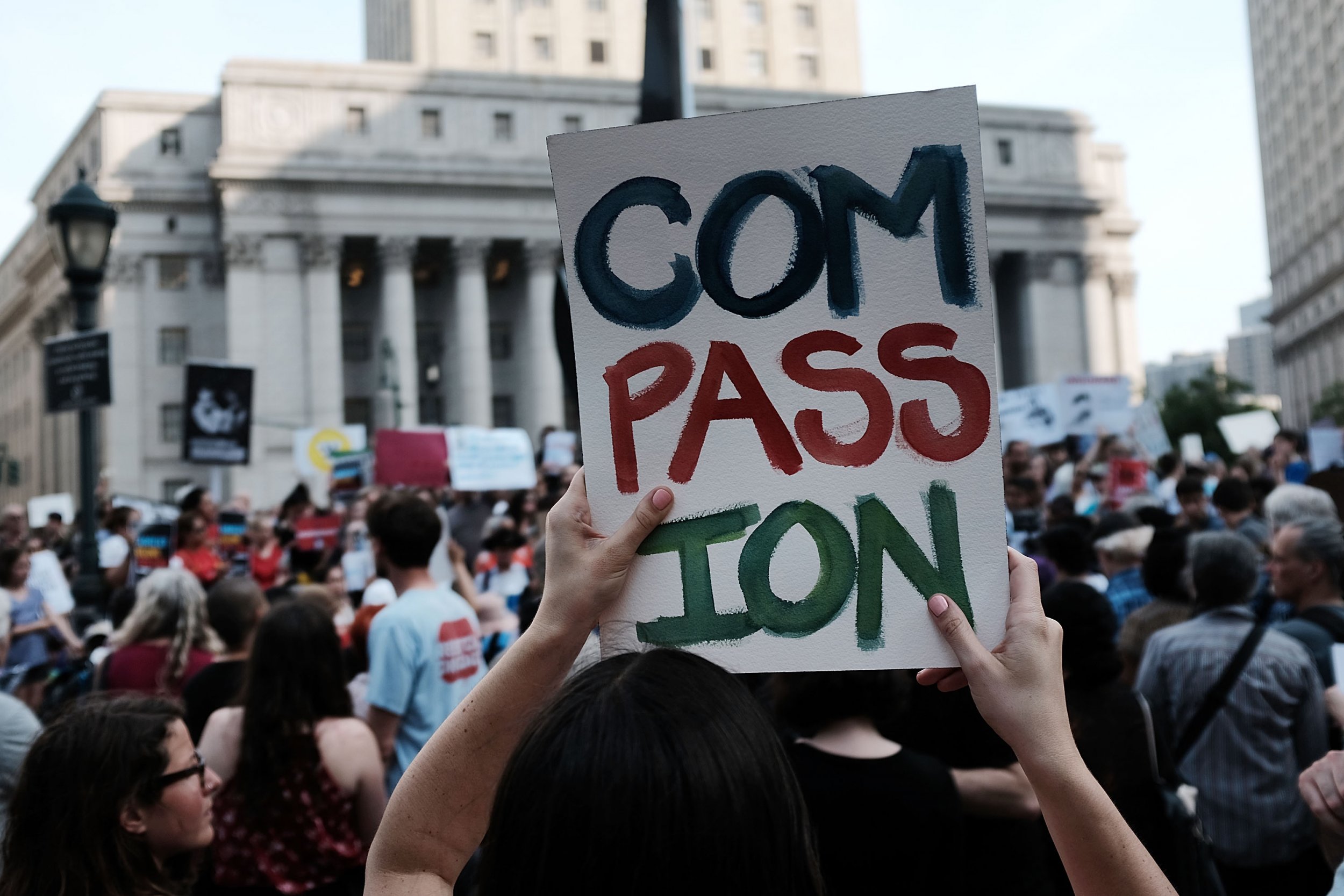
The term "bleeding-heart liberal" was first meant as an insult, then adopted as a badge of honor since Joseph McCarthy popularized the term in the 1950s in his ridicule of Edward R. Murrow. New research suggests that liberals might live up to their epithet.
Liberal students might actively want and experience empathy and willingly assist others in need more than conservatives, new evidence claims. Both groups, however, were more likely to empathize with people who shared their political views.
In a study spanning the U.S., Germany and Israel, a research team asked 1,000 people to read three versions of a fake article about protesters injured in a demonstration. In each version, protesters were either liberal, conservative or unaffiliated. Lead author Yossi Hasson reported liberal participants felt more empathy toward the protesters than conservatives did.
"On one hand, liberals, compared to conservatives, want to feel more empathy toward others regardless of the targets' political identity," Hasson told PsyPost. "On the other hand, both liberals and conservatives wanted to feel less empathy toward outgroup members compared to members of their ingroup or an ideologically-neutral group."
Empathy is likely an indicator of political affiliation rather than result. A recent Princeton study asserted that people with more empathetic tendencies were more likely to lean left and support government spending programs. Because empathetic people are more likely to support social reform and redistribution of wealth, they typically vote for liberal candidates. Conversely, conservatives, they argue, view the state as a "strict father" responsible for upholding order rather than "nurturing" citizens.
But just because conservative voters separate compassion from politics doesn't mean they aren't compassionate said Meridith Long, a political scientist at University of Pittsburgh not involved with the study.
"There aren't average differences between Republicans and Democrats in these general measures of compassion. But there are differences in compassion for certain groups," she told Newsweek. "Republicans sometimes say they don't find certain groups to be deserving of compassion, but Republican people still consider themselves passionate people overall. They're just less likely to connect the idea of compassion to political things."
A January study found social conservatives were more likely to rate marginalized groups like the obese and homeless as "disgusting" and show greater disgust toward photos of vomit, blood and feces than liberal participants.
"Social conservatism is thought to be rooted in beliefs that the world is dangerous and threatening," lead author Benjamin Oosterhoff wrote. "It is possible that greater visual attention to environmental signals that indirectly indicate disgusting stimuli...may increase perceptions of the world being dangerous, which may facilitate greater social conservatism."
Psychologist Nigel Barber said this "precautionary" worldview explains why conservatives are more likely to support pro-gun legislation and stricter immigration laws--they're defending themselves from perceived hostility.
"Conservatives see the world as a more threatening place because their brains predispose them to being fearful," he wrote in Psychology Today, citing a London study that found conservative students had a larger-than-average amygdala, the brain's emotional processing center that registers fear.
Surveys like this one uphold "familiar caricatures" of liberals and conservatives, Emma Green wrote in the Atlantic. She also pointed to results that consistent liberal respondents were 13 percent less likely to emphasize the "value of hard work" to their children than consistent conservatives, and only 26 percent of liberals said religious faith was important in parenting.
When it comes to some of both sides' guiding tenets, empathy levels don't have any correlation with political ideology, Long said.
"There are some issues, like capital punishment, where scoring high on measures of compassion tends to predict someone being more against," she told Newsweek. "But with other issues, like abortion, compassion doesn't tend to predict someone's view."
Uncommon Knowledge
Newsweek is committed to challenging conventional wisdom and finding connections in the search for common ground.
Newsweek is committed to challenging conventional wisdom and finding connections in the search for common ground.
About the writer
Scottie is a Newsweek science fellow and student at the University of Florida. Her work has appeared in Women's Health, the Gainesville ... Read more
To read how Newsweek uses AI as a newsroom tool, Click here.








